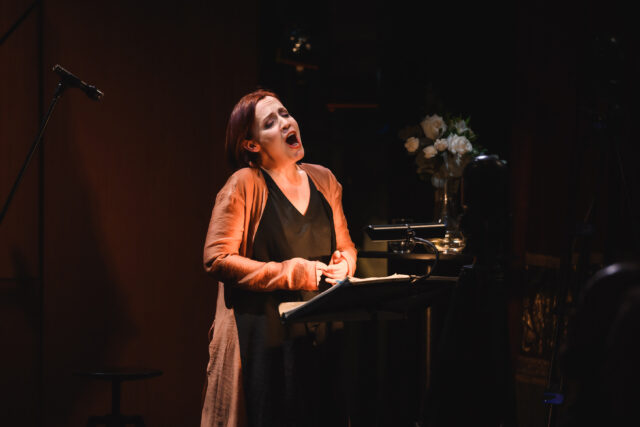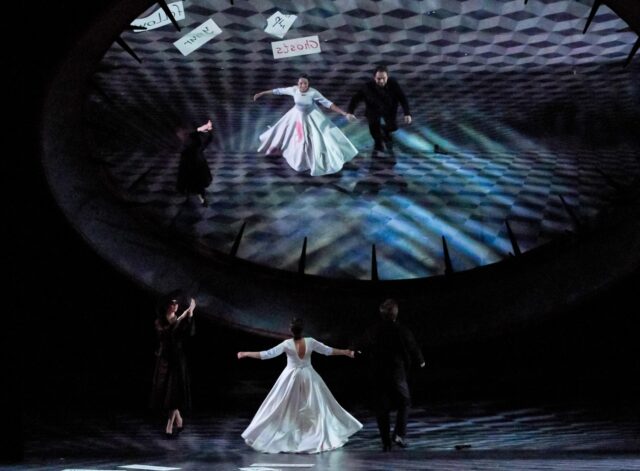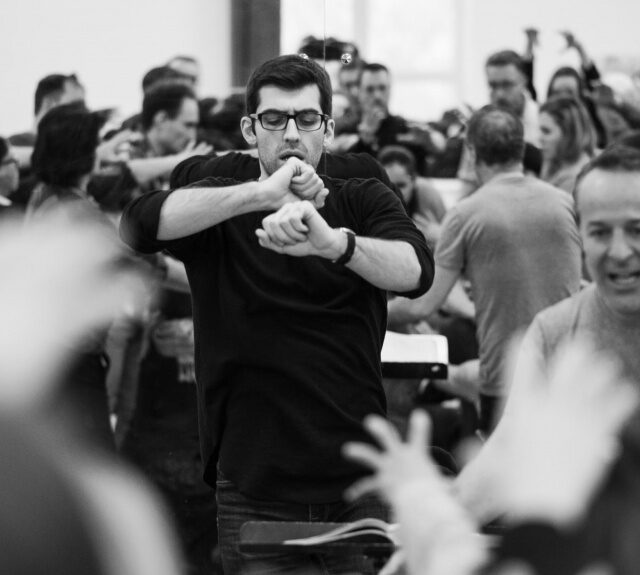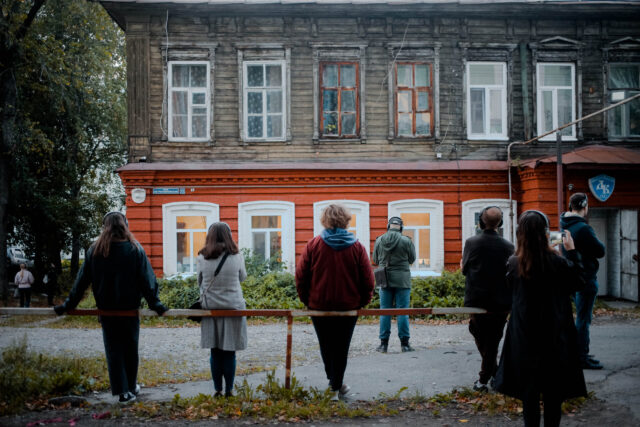TEODOR CURRENTZIS AND THE ORCHESTRA OF THE PERM OPERA AND BALLET THEATRE MUSICAETERNA HAVE RETURNED FROM A SUCCESSFUL TOUR OF EUROPEAN CAPITALS.
AT THE END OF fEBRUARY, THE MUSICIANS AND SEVERAL GUEST VOCALISTS, UNDER THE DIRECTION OF CURRENTZIS, PERFORMED PURCELL’S OPERA Dido and AENEAS AND hANDEL’S PSALM DIXIT DOMINUS iN FOUR PRESTIGIOUS VENUES ACROSS EUROPE: THE BERLIN PHILhArMONIC, THE ATHENS CONCERT HALL MEGARON, THE CITÉ DE LA MUSIQUE IN PARIS AND THE CALOUSTE GULBENKIAN FOUNDATION IN LISBON.
The tour of the Perm ensemble can, without exaggeration, be called a triumph. Both the public and the critics, not usually very generous with superlatives, were unanimous in their assessments: ‘What originated in Russia can be described as nothing short of a sensation’ – writes Peter Uehling, columnist at the Berliner Zeitung.
By the interval, shouts of bravo were ringing out after Handel’s Dixit Dominus. <…> The fantasy and precision with which Currentzis gives a different expression to almost every phrase is extraordinary, as the baroque unity of the emotions here is splintered into countless nuances. The brilliant intensity rests on the foundation of considered analysis.
This becomes more apparent in Purcell’s Dido and Aeneas, a piece that Currentzis and his ensemble have already recorded. As in the overture, the string parts reluctantly find each other and then equally unwillingly disentangle and part ways, conjuring an image of the entangled heart, that has never been heard before. <…> Currentzis took the final chorus to the edge of silence. It was saved from descending into the kitsch of expressive exaggeration by the logical conclusion arising from the deceleration of the piece and the virtuosity of the chorus and the ensemble.
BERLINER ZEITUNG (Berlin), Peter Uehling
Agreeing with the most read newspaper in Berlin, Andreas Göbel, columnist at Kulturradio, notes Teodor Currentzis’ particular style of conducting:
One can sense in his interaction with the chorus and orchestra, how attentively he accompanies and leads everything, how he does not leave any detail to chance. Occasionally, the arms of this tall man seemed too short even for him to reach out to the chorus over the orchestra, in order to give an important cue or a specific accentuation with his waving hands. None of this was even really necessary because everything had been rehearsed with breath-taking precision.
Teodor Currentzis takes the music he performs relentlessly seriously. In Handel’s Dixit Dominus, the tones of the chorus and instruments zing through the hall like arrows, so that one feels the need to duck. On the other hand, everyone is able to play and sing so seductively sweetly and enchantingly. It was more tense than any thriller – we were completely out of breath by the end.
In particular, he celebrates the changes of moods masterfully. The stage quakes during the boisterous dances. In contrast, the profoundly sad scenes, with physically palpable, seemingly never-ending pauses, appear so close to the edge of silence, yet there is a density that fills the entire room and seeps into every corner. This transfers directly to the audience – being able to hear a pin drop in the Philharmonic is a very rare occurrence.
KULTURRADIO (Berlin), Andreas Göbel
Jean-Baptiste de la Taille, columnist at the French newspaper La Scènе, agrees with his German colleagues:
In Dido and Aeneas, Currentzis continues to surprise: his interpretation of Purcell’s masterpiece borders on expressionism and captivates his audience from the first to the last note.
LA SCÈNE (Paris), Jean-Baptiste de la Taille
The musicAeterna orchestra also did not leave the audience indifferent: La Scènе notes ‘the striking involvement of the musicians in the conductor’s vision’ and Kulturradio in Berlin calls the ensemble ‘stunning’:
The orchestra was stunning: one could barely hear the individual tones in the singers’ accompaniment, but rather an atmosphere, a disembodied background colour. In this way, the mood of each scene was captured so well that all the lighting effects on stage were hardly necessary. As the melancholic finale became ever quieter, one would have liked nothing more than to tiptoe silently from the hall and take this magic home. It had been a long time since an evening had been so moving.
KULTURRADIO, Andreas Göbel
The critics agreed in their evaluations of the chorus and proclaimed that the musicians were ‘so talented they could embark on solo careers’:
The chorus is made up of Slavic musicians, who execute the conductor’s vision with expressiveness and acrobatic versatility. After the «With drooping wings» finale had faded away, sung almost inaudibly, the Parisian audience did not immediately burst into applause, but remained in silence for a few moments – that does not happen very often. <…> If Teodor Currentzis ever wishes to perform in Paris again, he will be welcomed with open arms.
FORUMOPERA (Paris), Laurent Bury
The chorus is so flexible and fluid. There can be no comparison with some local, stiff and static choristers who simply stand in a group. Here, everything is in motion; the rhythm seems to flow through every singer. They can all keep up with the most adventurous instrumental parts; it is almost performance art.
KULTURRADIO (Berlin), Andreas Göbel
The Greek press were also delighted with the brilliant results, which Teodor Currentzis and his Russian team have achieved:
It was skilful. This is a great performing ensemble of soloists, orchestra and chorus; with transitions from a whisper to an explosion; with the very confident hand of the conductor and an incredibly deep feeling, and – I repeat – a unique interpretation.
ΤΟ ΤΈΤΑΡΤΟ ΚΟΥΔΟΎΝΙ (Athens), Giorgos Sarigiannis
When God created us, providing us with only two ears, he wasn’t thinking about Teodor Currentzis, because last night I wished that God hadn’t been so mean. When Currentzis conducts, you interpret the music with your whole being, with your own blood. You become part of the music.
PROTAGON (Athens), Λίνα Στεφάνου
Having concluded their European tour at the end of February, Teodor Currentzis and his orchestra and chorus musicAeterna exerted an influence comparable with the debut of Diaghilev’s company in the West. The European audiences heard the musical heritage of the Russian musicians in an avant-garde interpretation.



